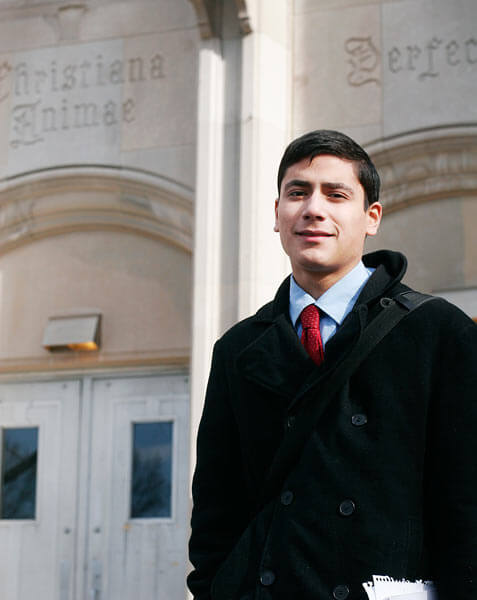By Joe Anuta
St. John’s University has chosen to stay out of the debate over whether religious institutions should be required to provide contraceptives to their employees, but students at the Queens school have not remained as silent.
St. John’s released a statement about the debate, which increased in intensity after the Obama administration issued a mandate requiring religious institutions to make insurance coverage for contraceptives available to their employees.
The statement specifically addresses a compromise offered by President Barack Obama to assuage anger from Catholic bishops since the religion does not allow for contraceptives. The compromise would put the onus for coverage on the insurance companies, a plan Catholic leaders have criticized since the institutions would still be paying premiums to the insurers and in essence still funding the contraceptives.
“St. John’s University’s health insurance policies are in compliance with New York state and federal law,” spokesman Dominic Scianna said. “And, while we are pleased that the Obama administration has offered a compromise today toward a resolution, we will look to the established policies we have in place and review and evaluate these changes.”
Scianna was referring to the fact that New York state already requires something similar to the compromise offered by Obama, according to the state Department of Financial Services.
But St. John’s University students were mixed on the issue.
“I think part of providing good health care is about providing options,” said Dennis Gonzalez, a sophomore studying government and politics. “It’s 2012. I think the option should be there.”
Gonzalez went on to say that not all of the faculty at the school are Catholics and should be given the option to receive contraceptives.
And besides, Catholics across the country do not think in one monolithic block.
“To say that every Catholic woman would not want to have contraceptives, that is taking the right away from the individual,” he said.
But student Karena Ioannou called the mandate absurd and said it infringed on the rights of a private university like St. John’s.
She and her friend Constantine Gurlakis, who is in his fifth year getting a combined undergraduate and master of business administration degree, said St. John’s has rights as well.
“I don’t believe that a private institution should be governed by a one-size-fits-all policy,” he said. “You should be free to decide what benefits they receive under your plan.”
Although a woman has the right to obtain birth control, he said, employers should not be required to dole it out.
“A woman has the option,” he said. “[Contraceptives] are available at your local drugstore.”
But Meaghan Dickinson, a senior majoring in communication, said it is part of women’s health and anyone who does not want to take advantage of it does not have to.
Bishop Nicholas DiMarzio of the Roman Catholic Diocese of Brooklyn and Queens is opposed to the mandate, and offered an alternative situation as an example, a spokeswoman said.
“If an enzyme was found in pork that had great curative powers of cancer would the government force observant Jews and Muslims to eat pork in order to prevent cancer?” he asked, according to the spokeswoman.
Reach reporter Joe Anuta by e-mail at januta@cnglocal.com or by phone at 718-260-4566.



































